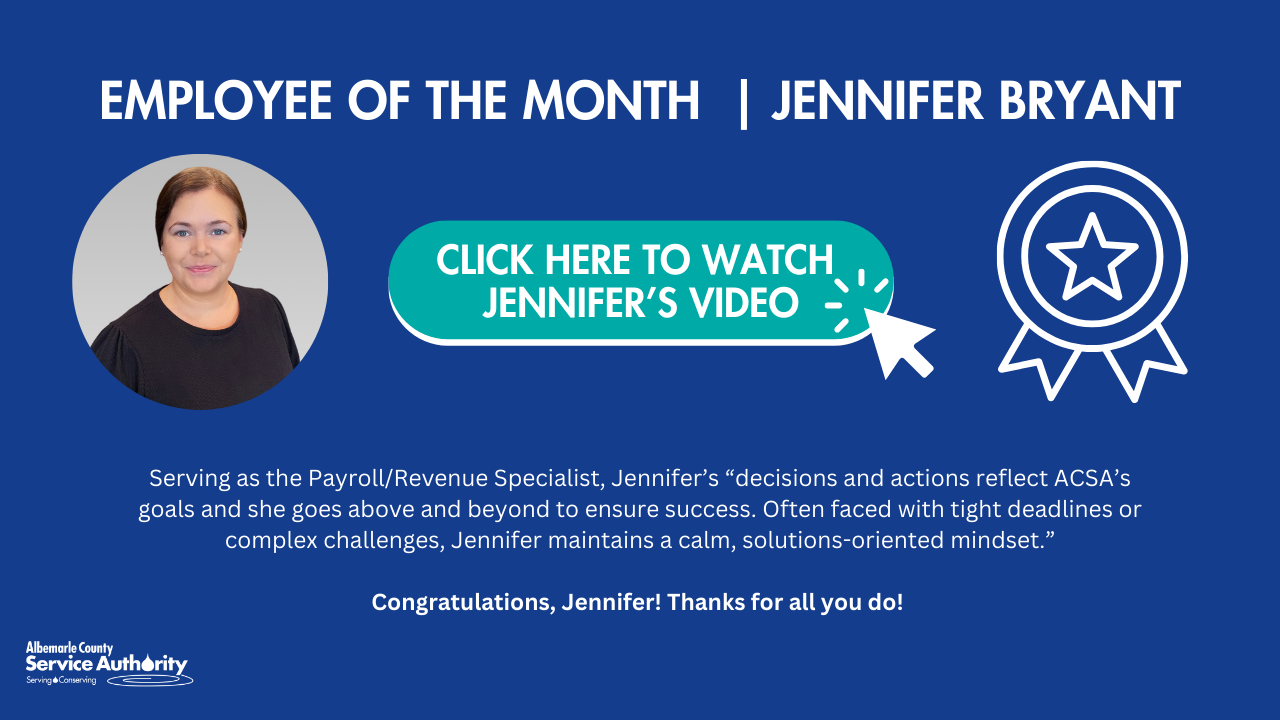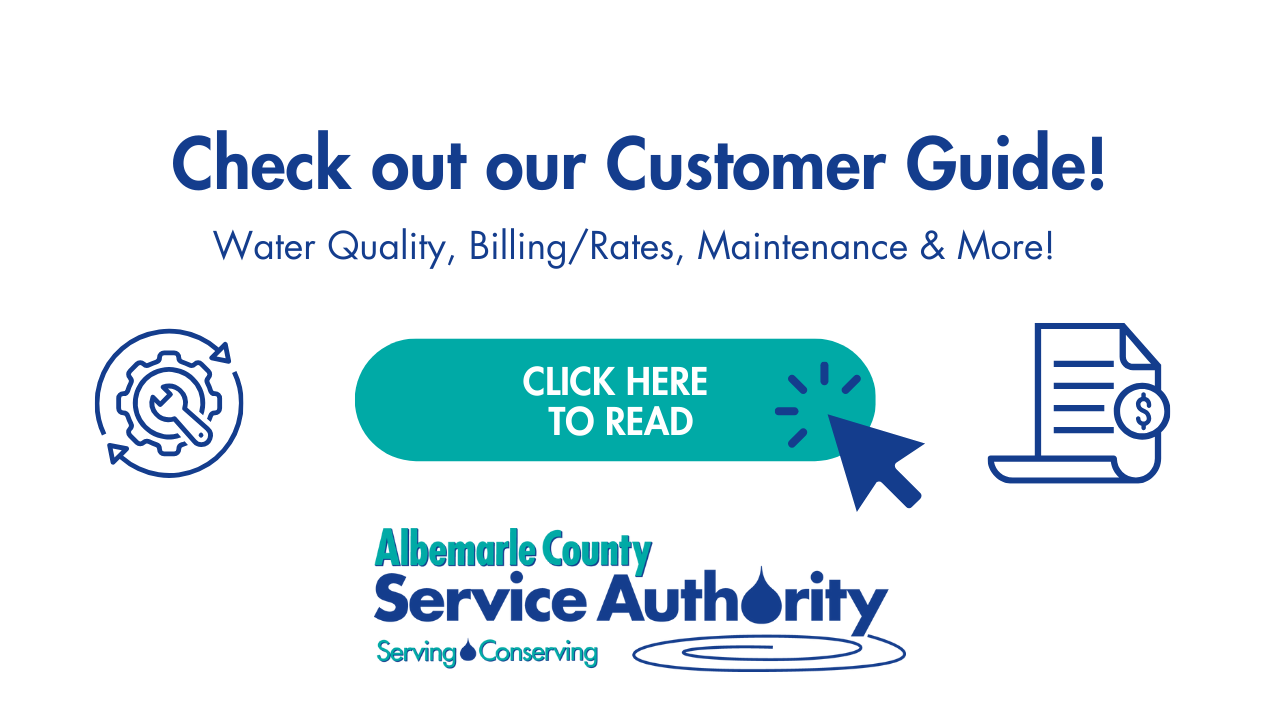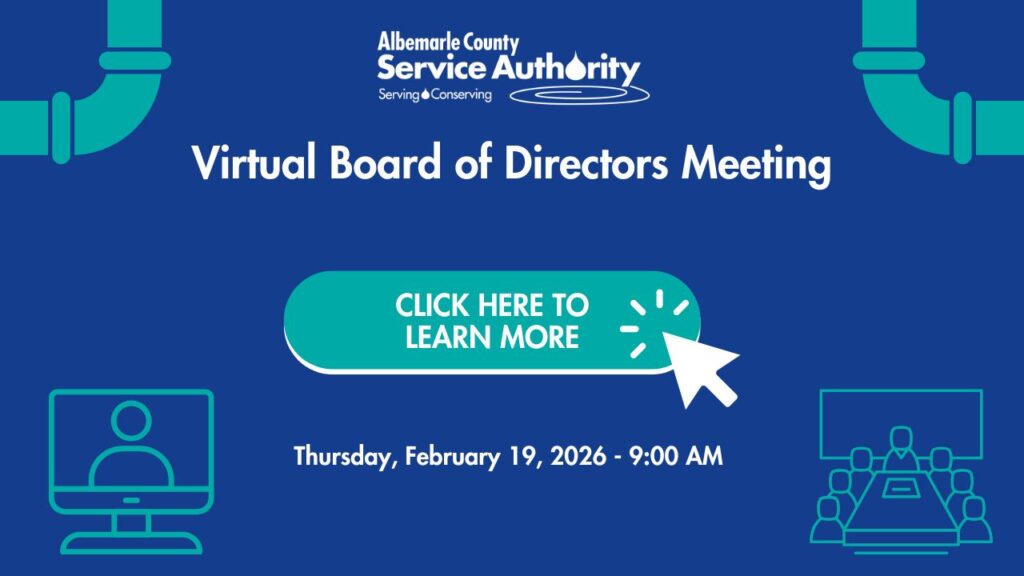ACSA News
Securing Our Future: How the Community Water Supply Plan Supports Albemarle County and Charlottesville
Albemarle County & Charlottesville Water Supply Plan at a Glance What is the plan? — A regional water supply initiative to protect and enhance water resources. Who’s leading it? — Rivanna Water & Sewer Authority (RWSA) supported by ACSA and the City of Charlottesville. What’s included? — Expanding reservoirs, improving pipelines, and increasing water security. How does it affect rates?
Board Meeting – February 19, 2026
Please join us on Thursday, February 19, 2026, at 9:00AM for our monthly Board of Directors meeting. You can join us in person at 168 Spotnap Road, Charlottesville, VA 22911 or virtually via Zoom. February 2026 Board Packet Link February 2026 Board Meeting Zoom Link Zoom Information | Meeting ID: 811 2675 9746 | Passcode: 209211
Latest News

What’s Clogging Up Our Sewer Lines?
Kitchen Best Practices for Fats, Oils and Grease (FOG) Imagine it’s the end of a… [+]
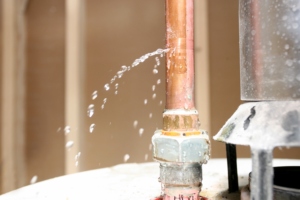
How to Find A Water Leak in Your Home
5 Ways to Determine If Your Home is a Water-Waster The steady drip of a… [+]

How to Lower Your Water Bill
Lowering your water bill has many benefits — from increasing your personal budget to decreasing… [+]

Should I Filter My Tap Water?
For most homes in the ACSA coverage region, a water filter isn’t necessary for safety.… [+]
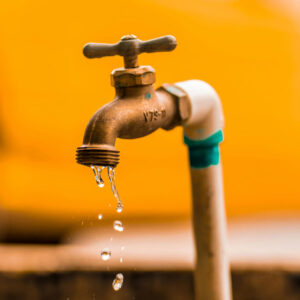
How do I decipher my water quality report?
To help our customers, we’ve put together this blog that defines essential terminology and addresses… [+]
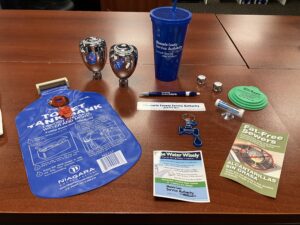
Conservation Program Spotlights
At Albemarle County Service Authority, we’re committed to helping our customers conserve water, protect the… [+]

